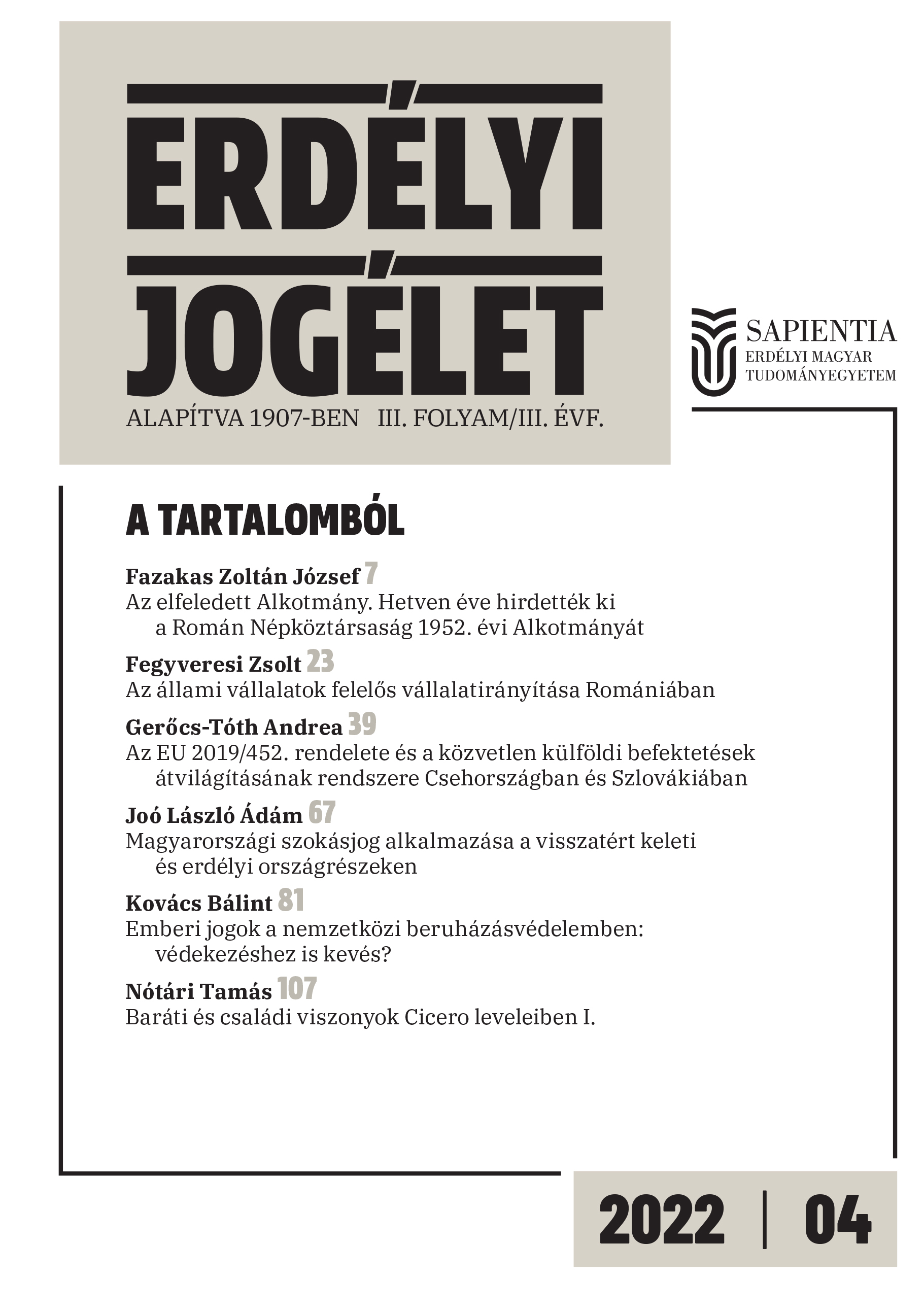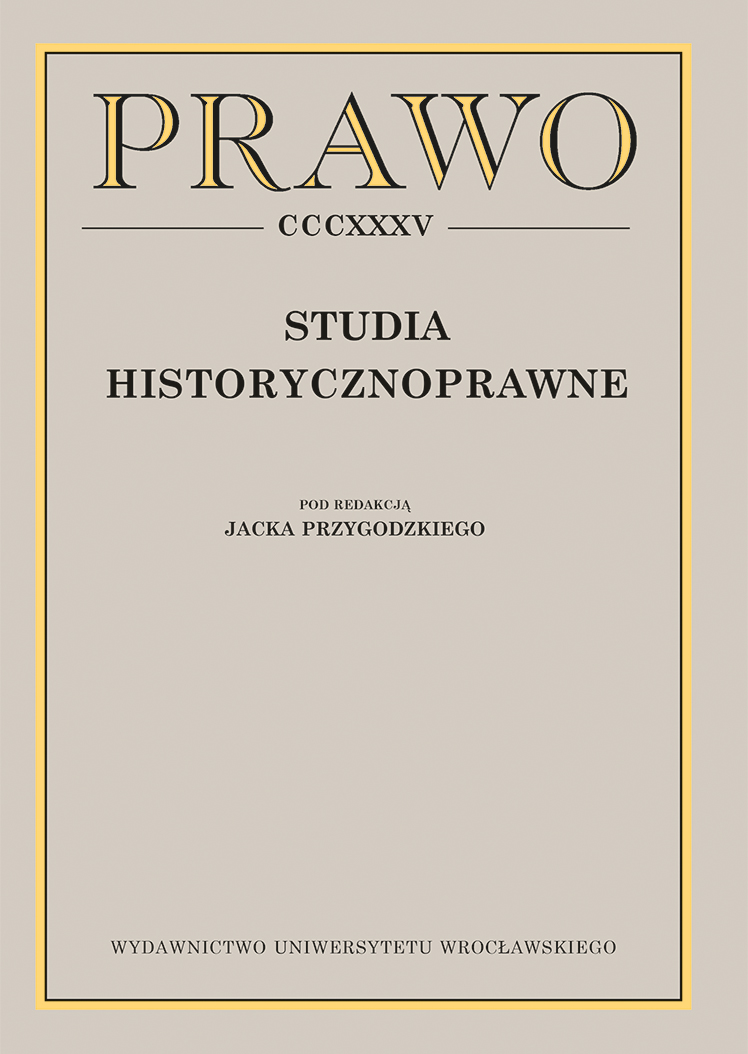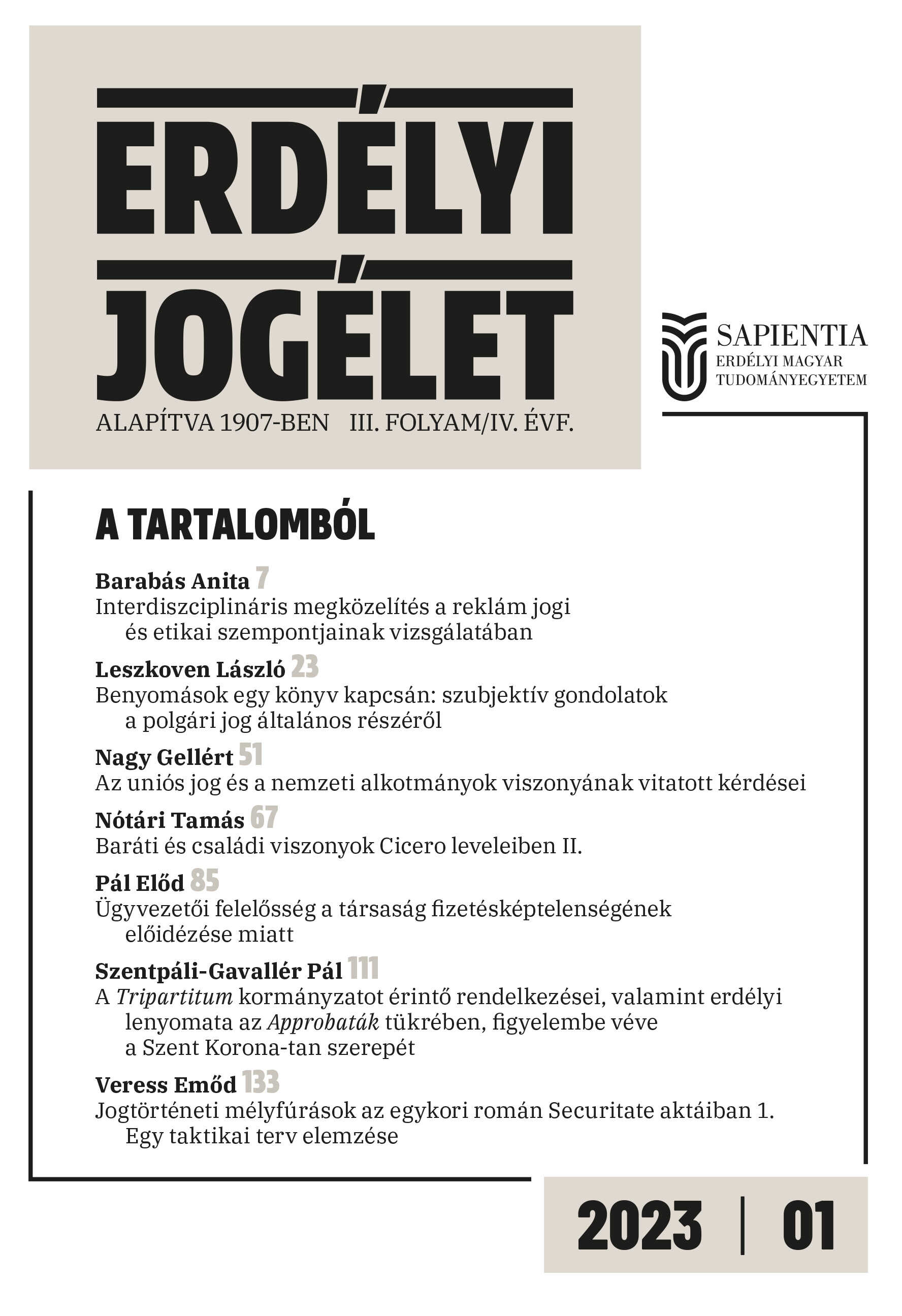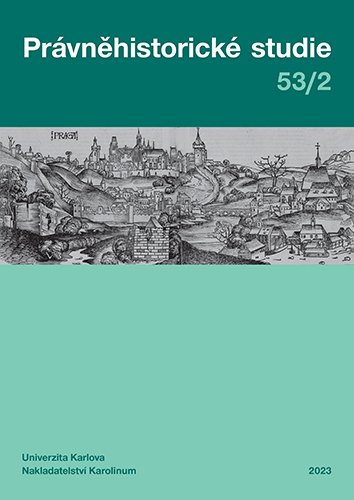
Baráti és családi viszonyok Cicero leveleiben I.
In a two-part series of studies, the author examines Cicero’s correspondence to discover how relations of family and friendship are expressed in personal, economic, and political terms. In this first instalment of the series, after a general introduction to Cicero’s correspondence, the author presents the concept of friendship that emerges from it. He then moves on to the presentation of the correspondence between Cicero and Atticus, describing and explaining the main motifs that emerge in it.
More...


